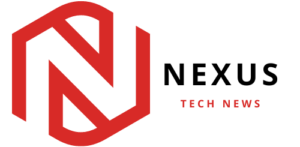Last week, I examined the future of blockchain technology. Blockchain technology allows safe, transparent, and decentralized transactions and data management. This might transform many businesses and procedures. Are there use cases, or is blockchain or Web 3 still in its infancy?
Most essential corporate blockchain applications we can test for acceptance.

Supply chain management comes first. Blockchain can monitor items, authenticate their validity, and provide real-time insight to establish an open, secure supply chain network. Supply-chain management achieves this. This may cut supply chain management expenses and boost efficiency. We’ll now know where our food comes from.
Digital identity verification is another. A decentralized digital identity verification system might use blockchain technology. This method lets people control their identification data. This prevents identity theft, streamlines identity verification, and improves privacy and security. Imagine a blockchain-based national ID that eliminates fraud.
Blockchain technology may decrease costs, speed up and secure financial transactions, and eliminate intermediaries.
Financial services apps can use blockchain technology. Payment processing, peer-to-peer lending, and asset management are examples. Blockchain technology might reduce expenses, speed up and secure financial transactions, and remove intermediaries. Blockchain allows safe, transparent transactions. How about OFWs sending money without intermediaries?
Blockchain technology can secure patient data, accelerate medical research, and promote interoperability between healthcare providers. This might enhance patient outcomes, cut healthcare expenditures, and streamline healthcare delivery.
Blockchain technology can provide a decentralized, open-source IP rights management system. Blockchain tracks digital asset ownership. This might safeguard creators and innovators from copyright infringement, enhance licensing, and boost intellectual property transparency.
Blockchain technology can protect title transfers and decrease fraud in real estate transactions. Real estate can leverage this tech. To secure ownership, many governments have moved land titles to the blockchain.
Blockchain technology may be used to provide a secure and transparent voting and election platform, reducing electoral fraud and preserving vote validity. I read that our Comelec (Commission on Elections) has begun investigating blockchain applications in our next elections.
Ultimately, blockchain technology might create transparent and responsible giving platforms for charities and non-profits. Contributors may track their donations and ensure they were used as intended.
Blockchain technology has various business uses, including these. These resources offer in-depth analysis and case studies of blockchain technology uses. Coindesk, Cointelegraph, Blockonomi, academic publications, and industry papers from the World Economic Forum and Deloitte are useful locations to start your study.
Dr. Donald Lim founded the Philippine Blockchain Association and leads Philippine Blockchain Week. He anchors FintechTV Asia.

